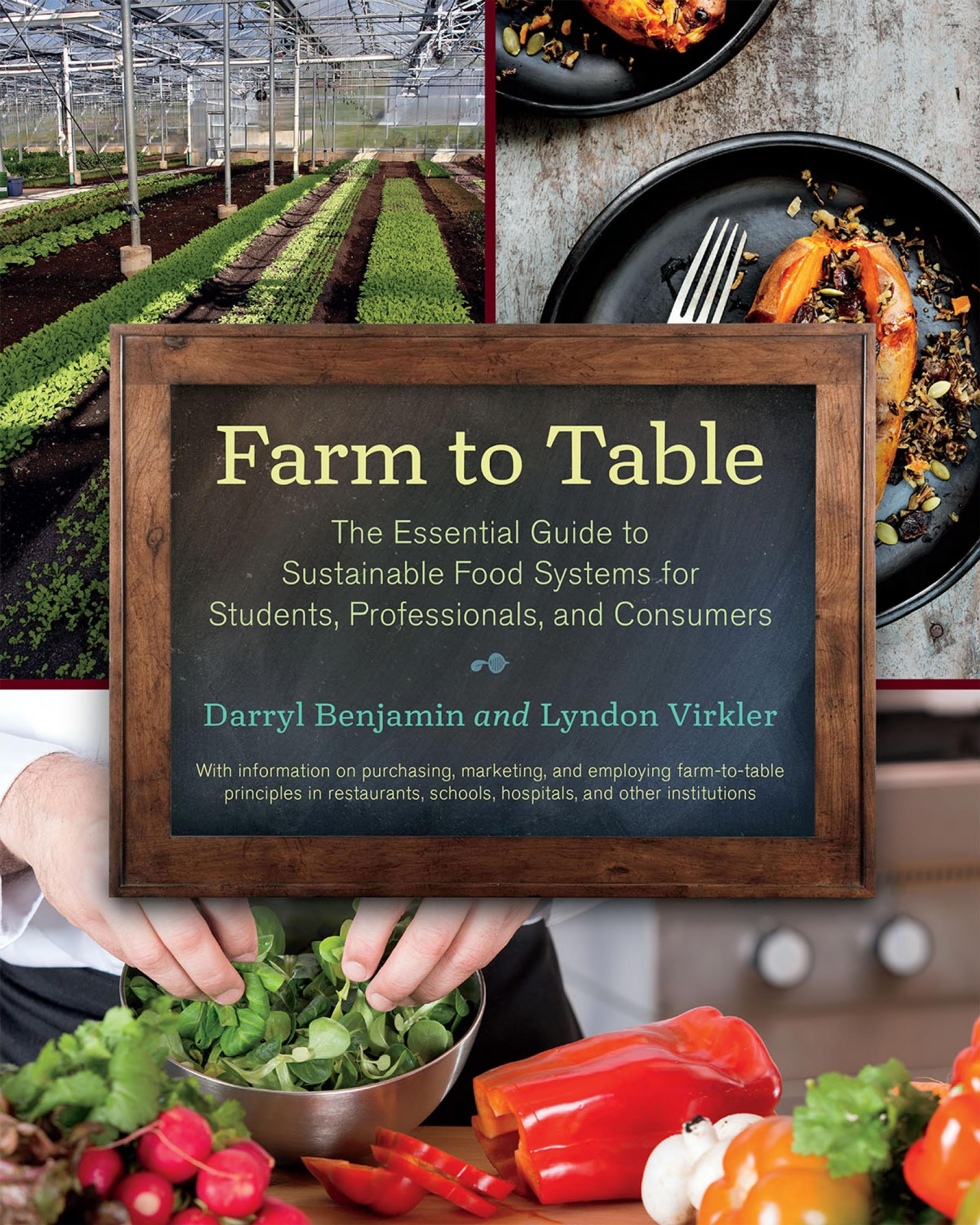With information on purchasing, marketing, and employing farm-to-table principles in restaurants, schools, hospitals, and other institutions
Nearly a century ago, the idea of “local food” would have seemed perplexing, since virtually all food was local. Food for daily consumption―fruits, vegetables, grains, meat, and dairy products―was grown at home or sourced from local farms. Today, most of the food consumed in the United States and, increasingly, around the globe, is sourced from industrial farms and concentrated animal feeding operations (CAFOs), which power a food system rife with environmental, economic, and health-related problems.
The tide, however, is slowly but steadily turning back in what has been broadly termed the “farm-to-table” movement. In Farm to Table, Darryl Benjamin and Chef Lyndon Virkler explore how the farm-to-table philosophy is pushing back modern, industrialized food production and moving beyond isolated “locavore” movements into a broad and far-reaching coalition of farmers, chefs, consumers, policy advocates, teachers, institutional buyers, and many more all working to restore healthful, sustainable, and affordable food for everyone.
Divided into two distinct but complementary halves, “Farm” and “Table,” Farm to Table first examines the roots of our contemporary industrial food system, from the technological advances that presaged the “Green Revolution” to U.S. Secretary of Agriculture Earl Butz’s infamous dictum to farmers to “Get big or get out” in the 1970s. Readers will explore the many threats to ecology and human health that our corporatized food system poses, but also the many alternatives―from permaculture to rotation-intensive grazing―that small farmers are now adopting to meet growing consumer demand. The second half of the book is dedicated to illuminating best practices and strategies for schools, restaurants, healthcare facilities, and other business and institutions to partner with local farmers and food producers, from purchasing to marketing.
No longer restricted to the elite segments of society, the farm-to-table movement now reaches a wide spectrum of Americans from all economic strata and in a number of settings, from hospital and office cafeterias, to elementary schools and fast-casual restaurants. Farm to Table is a one-of-a-kind resource on how to integrate sustainable principles into each of these settings and facilitate intelligent, healthful food choices at every juncture as our food system evolves. While borrowing from the best ideas of the past, the lessons herein are designed to help contribute to a healthier, more sustainable, and more equitable tomorrow.


























دیدگاه کاربران